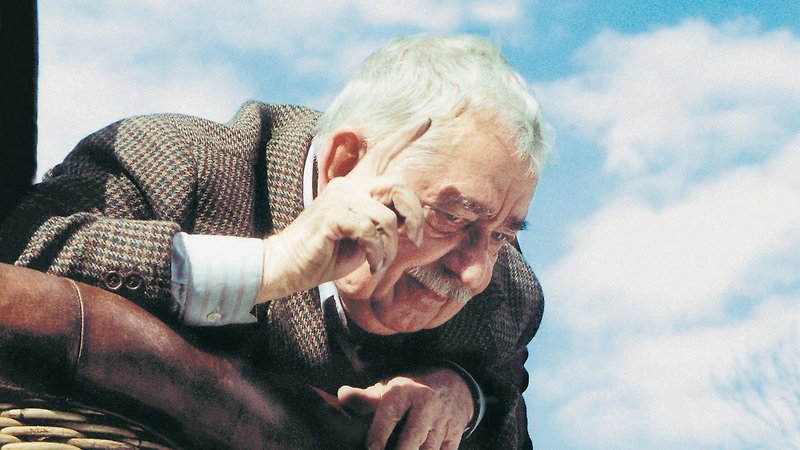
Youthful impulses encounter the constraints of advancing years in this wry Czech comedy.
Screened as part of NZIFF 2003
Autumn Spring 2002
Babí léto
Refusing to grow old gracefully, Fanda, the vital force in this popular Czech comedy, is an inveterate, 75-year-old prankster and bon vivant. As the film opens Fanda and Eda, his longtime friend and partner-in-crime, are impersonating retired impresarios, loftily inspecting real estate far beyond their means. Meanwhile Emilie, his long-suffering wife, gets to grips with the financial realities of retirement and hankers for domestic regularity. When the old faker feigns death to get his way, Emilie decides 44 years of exasperation is quite enough – and the film becomes a late-life comedy of remarriage. Meanwhile their son, struggling manfully to maintain children, current and ex partners under the same roof, manoeuvres to commandeer the parental apartment for one of his families. (This memorably feckless character makes complete sense as the offspring of such a cheerfully irresponsible old man.) The mutual tenderness of the old couple is ultimately as affecting as their sparring is funny and the film’s conclusion is much more thoughtful than its unruly hero might have chosen. — BG
"This movie, loosely inspired by the life of its Czech star (Closely Watched Trains and Jacob the Liar), was written expressly for Mr Brodsky, who became seriously ill soon after it was completed and committed suicide last April at 81. Ms Zázvorková, a leading Czech theater performer, was a close friend of Mr Brodsky for 55 years, and the two lend the bond of a long-married couple a stirring resonance. While her character spends most of the movie nagging her husband, Ms Zázvorková unfailingly projects the tenderness and devotion underneath that irritation.
Mr Brodsky’s final screen performance in one of his richest roles finds overlapping layers of humor and pathos in a man whose best defense against his wife’s harangues is to put on a poker face and tune out. At the same time, Mr Brodsky conveys the powerful survival instincts motivating his character’s pranks. What better way to rage against the dying of the light than to play these delicious games of let’s pretend?" — Stephen Holden, New York Times